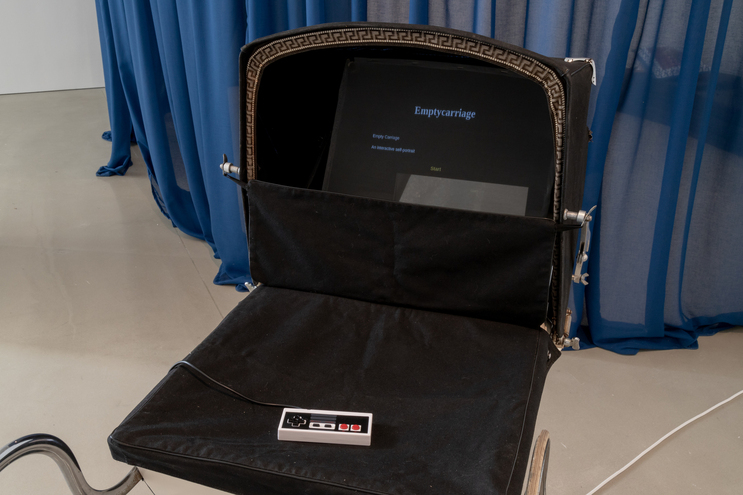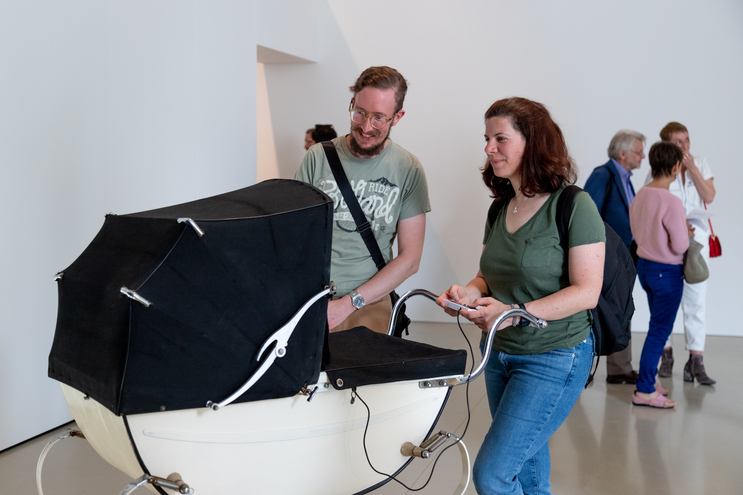Site Gallery installation, 2019
>



A carriage-built pram, standing mid-gallery, prompts my approach. I peer under its hood but in place of a child find an embedded screen. On-screen text entices with an opening remark from the character ‘Zoyander,’ reading: “So, you’re going to give me some questions to think about, until I’m convinced that I don’t really exist?” The viewer is then invited to direct the narrative using a hand-held games controller to select from on-screen prompts. We can, for example, instruct Zoyander to “look for the self in sensations” or “pay attention to thoughts;” we can praise them or ask them to “clarify.” Empty Carriage: an interactive self-portrait (2019) is one of three works – all at different stages of development – that Zoyander Street exhibited in the Freelands Platform exhibition. Each employs computer games technology to represent or manifest aspects of transgender experience.
Navigating the dialogue between Zoyander and a second character the ‘guide’ is a stimulating experience. Any existential crisis that could ensue as they seek, and fail to locate, ‘self’ is allayed by the intellectual pleasure of their arguments. Empty Carriage raises philosophical questions that are not overtly about trans identity. The work was informed though by Street’s personal experience of transitioning. As he explains: "on the one hand it's not about transness […] but it's about these ontological questions of identity that transness hits upon. It comes up constantly in transness." With this in mind the recurrent invitations to “check in with how Zoyander is feeling” (incongruously personal against an otherwise objective, empiricist tone) make new sense. When Zoyander relates a prior depression but states now they are “doing well,” a philosophical conundrum becomes a matter of real-world import.